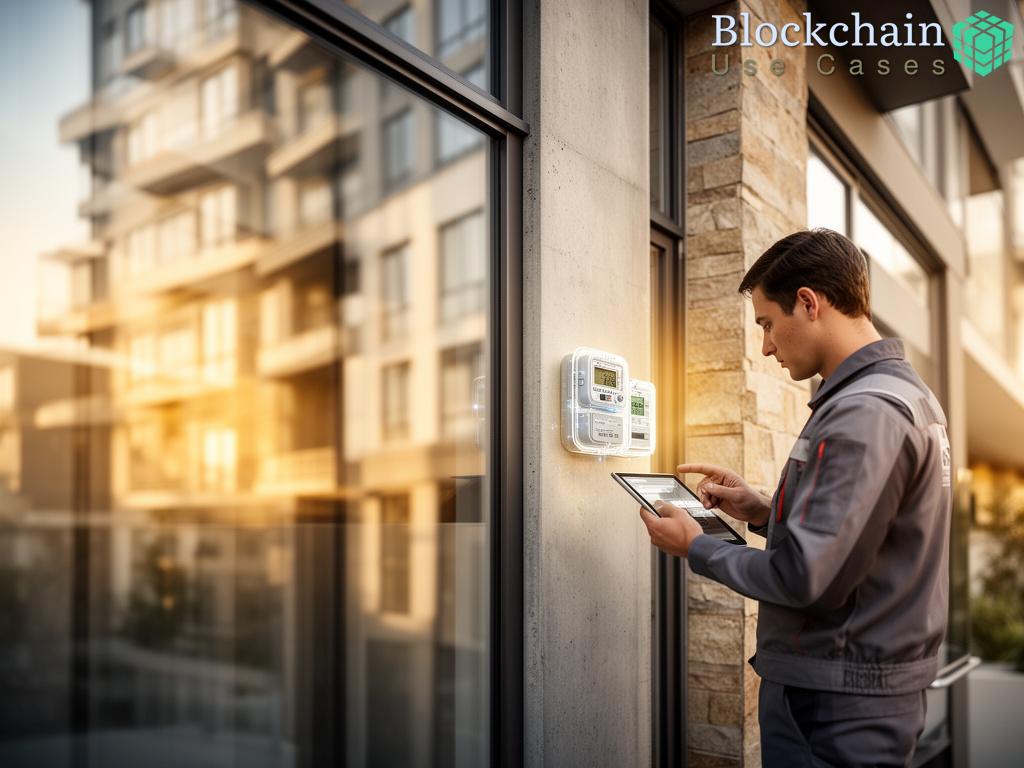Overview of Smart Contracts in Real Estate
The advent of blockchain technology has introduced a transformative method of conducting real estate transactions through smart contracts. These self-executing contracts, with the terms of the agreement directly written into code, streamline the often cumbersome and traditional processes associated with property buying and selling.
Smart contracts eliminate the need for intermediaries, reduce the risk of fraud, and enhance transaction speed, making them a compelling solution in the real estate sector.
Understanding Smart Contracts
At their core, smart contracts are digital agreements that automatically execute actions when predefined conditions are met. In the realm of real estate, this means that once all parties fulfill their obligations—such as payment and transfer of ownership—the contract executes the necessary transactions without further human intervention.
This technology not only enhances efficiency but also significantly minimizes the chances of disputes arising from misunderstandings or errors. To fully grasp the impact of smart contracts in real estate, it is essential to explore their key features and benefits.
Key Benefits of Smart Contracts in Real Estate Transactions
The integration of smart contracts into real estate transactions offers numerous advantages. Below are some of the most significant benefits:
- Transparency: All parties involved can view the contract terms and transaction history, reducing the likelihood of disputes.
- Cost-Effective: By eliminating intermediaries such as brokers and escrow agents, buyers and sellers can save on associated fees.
- Speed: Transactions can be completed in a matter of hours instead of days or weeks, as smart contracts automate the process.
- Security: Blockchain technology ensures that transactions are secure and tamper-proof, protecting all parties involved.
- Reduced Risk of Fraud: The transparent nature of blockchain significantly lowers the chances of fraudulent activity.
The Future of Real Estate Transactions
As the real estate industry continues to adapt to technological advancements, the adoption of smart contracts is expected to grow. The potential for increased efficiency, reduced costs, and enhanced security makes them an attractive option for real estate professionals. However, challenges such as regulatory compliance and technological integration must be addressed before widespread adoption can occur.
In conclusion, smart contracts represent a significant leap forward in the way real estate transactions are conducted. By leveraging blockchain technology, stakeholders in the real estate market can look forward to a more efficient, secure, and transparent future.
Advantages of Automated Closing Processes
The integration of smart contracts into the closing and settlement phases of real estate transactions is not just a technological advancement; it represents a paradigm shift in how these processes are managed. Automated closing processes eliminate traditional bottlenecks, ensuring that transactions are handled swiftly and efficiently. By leveraging automation, stakeholders can enjoy numerous benefits that enhance their experience and satisfaction.
Streamlined Transactions for All Parties
One of the most compelling advantages of automated closing processes lies in their ability to streamline transactions for everyone involved. By automating tasks such as document verification, fund transfers, and the scheduling of closing appointments, smart contracts reduce the workload on real estate professionals while simultaneously providing a seamless experience for buyers and sellers. The intricacies of these transactions are handled in real-time, leading to quicker resolutions and less frustration.
Enhanced Accuracy and Reduced Errors
Human error can often lead to costly delays and misunderstandings during the closing process. Automated solutions, powered by smart contracts, minimize these risks by ensuring that all terms and conditions are explicitly coded and adhered to. This precision not only saves time but also fosters greater trust among parties. With less room for error, the potential for disputes is greatly diminished, paving the way for smoother transactions.
Key Benefits of Automated Closing Processes
Below is a summary of the most significant advantages that automated closing processes bring to real estate transactions:
- Time Efficiency: Automated processes can reduce the closing time from weeks to mere hours, allowing parties to finalize deals swiftly.
- Cost Savings: By eliminating unnecessary fees associated with manual processing and intermediaries, buyers and sellers can save substantial amounts of money.
- Improved Transparency: All participants have access to the same information, ensuring clarity and openness throughout the transaction.
- Increased Security: Blockchain technology provides a secure environment for storing sensitive information, safeguarding against data breaches and fraud.
- Flexible Accessibility: Parties can access transaction details anytime and anywhere, enhancing convenience and responsiveness.
Challenges and Risks in Smart Contract Implementation
Understanding the Landscape of Challenges
While the integration of smart contracts in real estate transactions promises numerous benefits, it is essential to acknowledge the challenges and risks that accompany their implementation. Stakeholders must navigate a complex landscape that includes technological limitations, legal uncertainties, and potential for misinterpretation of contract terms. This understanding is crucial for successfully harnessing the potential of smart contracts and mitigating risks that could undermine their effectiveness.
Technological Limitations and Integration Issues
The first significant challenge lies in the technological infrastructure required for the successful deployment of smart contracts. Many real estate professionals may lack the necessary technical expertise to develop or manage these contracts effectively. Furthermore, the existing systems within the real estate industry may not be compatible with blockchain technology, leading to integration challenges. Without proper training and resources, users may struggle to adapt to this new paradigm, potentially leading to errors and inefficiencies.
Legal and Regulatory Landscape
The legal framework surrounding smart contracts remains in a state of flux, creating uncertainty for those looking to implement them in real estate transactions. Jurisdictions vary in their recognition of smart contracts, and the absence of standardized regulations can complicate their enforcement. Stakeholders must remain vigilant about compliance with local laws and regulations, as failure to do so could expose them to legal disputes and financial liabilities. Moreover, the complexity of drafting legally binding smart contracts can lead to ambiguities that may inadvertently create loopholes, further complicating transactions.
Potential Misinterpretations and Errors
Despite the promise of enhanced accuracy through automation, the risk of misinterpretation of contract terms still looms. Smart contracts are only as reliable as the code that underpins them. If the initial conditions and actions coded into the smart contract are misunderstood or inaccurately represented, the resulting transactions could yield unintended consequences. This highlights the importance of involving legal experts during the drafting phase to ensure that all terms are clearly defined and accurately implemented.
Key Challenges Overview
To provide a clearer understanding of the challenges associated with smart contract implementation in real estate, the following table summarizes the key risks and considerations:
| Challenge | Description |
|---|---|
| Technological Limitations | Lack of technical expertise and integration issues with existing systems. |
| Legal Uncertainty | Varying recognition and regulations across jurisdictions complicating enforcement. |
| Misinterpretation of Terms | The risk of coding errors or ambiguities leading to unintended outcomes. |
Legal Considerations for Smart Real Estate Transactions
As the integration of smart contracts into real estate transactions gains traction, it is imperative for stakeholders to understand the legal considerations that accompany this innovative approach. The intersection of technology and law presents unique challenges, particularly in ensuring that all aspects of property transactions are compliant with existing legal frameworks. This exploration into the legal landscape will shed light on the critical factors that must be addressed when utilizing smart contracts in real estate.
Compliance with Local Laws and Regulations is a fundamental consideration for any real estate transaction. The legal validity of smart contracts varies significantly across jurisdictions, with some regions embracing this technology while others remain skeptical. It is essential for parties involved in a transaction to conduct thorough research on local regulations governing smart contracts. This includes understanding how these contracts are recognized in courts and whether they satisfy the requirements of enforceability. Furthermore, as the legal landscape evolves, stakeholders must remain vigilant to changes in legislation that could impact the use of smart contracts in real estate.
Another pivotal aspect to consider is the clarity and precision of contract language. Despite smart contracts being defined by code, the underlying agreements must be articulated in a manner that is legally sound. Ambiguities in contract terms can lead to significant disputes and misunderstandings. This necessitates the involvement of legal experts during the drafting phase to ensure that all terms are accurately represented and that the intentions of the parties are clearly articulated. The coding of these terms into a smart contract must reflect the legal standards and expectations of the involved parties, which underscores the importance of having legal counsel review the contract before execution.
Moreover, the potential for disputes arising from coding errors or misinterpretations cannot be overlooked. While smart contracts are designed to be tamper-proof and self-executing, they are only as reliable as the code they are built upon. If the conditions coded into the contract are flawed or misunderstood, the outcomes could be detrimental to one or more parties. It is crucial to implement rigorous testing and validation processes to mitigate these risks. Additionally, establishing a clear dispute resolution mechanism within the contract can provide a roadmap for resolving any issues that may arise, thereby enhancing the overall trust and reliability of smart contract transactions in real estate.
Future Trends in Smart Contract Technology for Real Estate
The evolution of smart contracts in real estate is poised to enter a new phase, driven by advancements in technology and shifting market demands. Stakeholders in the real estate sector are beginning to recognize the potential of smart contracts not merely as a tool for efficiency but as a transformative force that could redefine the landscape of property transactions. As we delve into the future trends surrounding smart contract technology, it becomes evident that the implications extend beyond mere automation; they encompass enhanced transparency, integration with emerging technologies, and the potential for widespread acceptance across various jurisdictions.
Integration with Emerging Technologies is expected to play a pivotal role in the future of smart contracts in real estate. The synergy between artificial intelligence (AI), the Internet of Things (IoT), and blockchain technology will likely create an ecosystem where smart contracts can execute transactions based on real-time data inputs. For instance, IoT devices can monitor property conditions and automatically trigger maintenance contracts when certain thresholds are met, ensuring that properties remain in optimal condition. This level of integration not only enhances operational efficiency but also fosters a more proactive approach to property management.
Additionally, the rise of decentralized finance (DeFi) within real estate transactions signals a shift towards innovative financing mechanisms. Smart contracts can facilitate complex financial arrangements, such as fractional ownership and tokenization of real estate assets. This democratization of property ownership allows for greater accessibility to investment opportunities, enabling a broader audience to participate in real estate markets. By leveraging smart contracts, transactions can be executed seamlessly, lowering barriers to entry and increasing market liquidity.
Moreover, as the legal landscape evolves, there will be a notable emphasis on the development of standardized protocols and regulations governing smart contracts. The establishment of universally accepted guidelines will enhance the credibility and enforceability of smart contracts in real estate. Stakeholders will benefit from clearer legal frameworks that not only facilitate smoother transactions but also build trust among all parties involved. This evolution will empower real estate professionals to fully embrace smart contract technology, confident in its compliance with existing laws and regulations.
In summary, the future of smart contract technology in real estate is characterized by remarkable potential for innovation and transformation. As integration with emerging technologies, the rise of decentralized finance, and the establishment of standardized regulations gain traction, smart contracts will likely become an integral component of the real estate transaction process. This evolution will not only optimize efficiency but also reshape how stakeholders engage with one another in the property market, paving the way for a more transparent and accessible real estate ecosystem.





